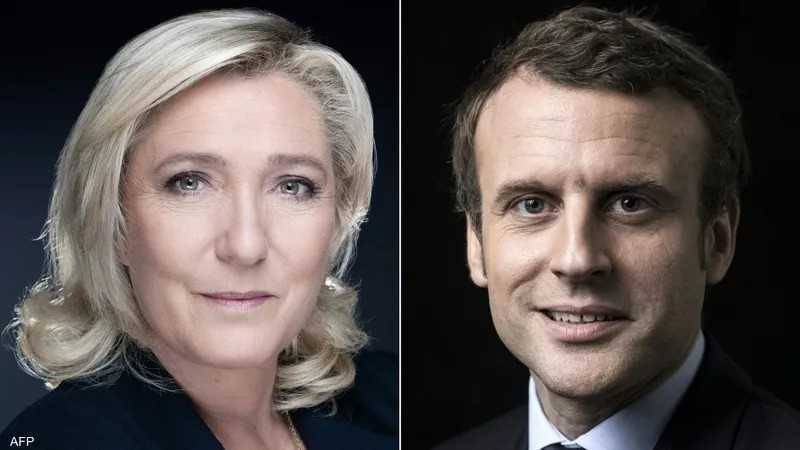From purchasing power and education to pensions, immigration, and international relations, here is a comparison of the programs of the major parties participating in the legislative elections in France: the "National Rally" (far-right), the "New Popular Front," and President Emmanuel Macron's coalition.
**Purchasing Power**
Purchasing power, which is a primary concern for the French according to recent polls, is at the heart of the three main coalitions' programs. The "National Rally" pledges to reduce the value-added tax on energy products from 20% to 5.5%, with plans to "freeze" this tax on about a hundred essential products "in the event of rising inflation." The left's economic plan revolves around a minimum net salary of 1,600 euros, compared to about 1,400 euros today. The left also intends to tie wages to inflation and adjust public sector salaries. To finance this costly project for public finances, the leftist coalition relies on a solidarity tax on wealth, supported by an environmental component, as well as a "wider" taxation on large profits and higher contributions from high earners. While the left rejects the European "budget stability pact," which stipulates a budget deficit of less than 3% of GDP, the outgoing Macronian majority commits to adhering to this rule by 2027 (down from 5.5% in 2023) without raising taxes. They aim to allow companies to raise up to 10,000 euros per year tax-free as a purchasing power bonus known as the "Macron Bonus," established in 2018 following the "Yellow Vest" protests.
**Immigration**
The left intends to repeal the immigration law passed in parliament this winter and establish "full land rights," creating a "climate refugee" status among its proposals. In contrast, the "National Rally" commits to a new "emergency" immigration law in 2024 focused on abolishing birthright citizenship, tightening family reunification conditions, fining illegal residencies, and converting state medical assistance for undocumented foreigners into "vital emergency assistance." The far-right party also expressed its intention to prevent dual nationals from holding certain "sensitive positions" without reconsidering the principle of dual nationality, as it did in 2022.
**International Relations**
France’s foreign policy is typically the prerogative of the president. However, both the left and far-right have offered proposals in this regard. The left coalition seeks to overcome deep conflicts among its components, denouncing "terrorist massacres" committed by Hamas in its program, while pledging to combat the "alarming rise" in "racist, anti-Semitic, and anti-Islamic acts." It calls for immediate recognition of the State of Palestine, unlike the "National Rally," whose leader Jordan Bardella considers such a move would today equate to "recognition of terrorism." Bardella emphasized his intention "not to undermine France's international commitments" if appointed as prime minister. In 2022, Marine Le Pen, the party's former leader and daughter of its founder, called for withdrawing from NATO's command structure. Bardella also promised to be "highly vigilant" regarding "Russian interference attempts," setting "red lines" concerning sending soldiers to Ukraine or long-range missiles or military equipment that could "directly target Russian cities." These positions contrast sharply with President Emmanuel Macron’s support for using Western weapons in Ukraine to "disrupt" Russian military bases. At the end of the legislative campaign, Marine Le Pen asserted that the post of "military commander," held by the president, is merely a "ceremonial title," signaling a potentially strained relationship with Macron should the "National Rally" win.
**Pensions and Health**
Both the far-right and the left alliance propose abolishing unemployment insurance established by the government, which tightens eligibility conditions and shortens the duration of benefits if they win in the second round of elections on July 7. Among other controversial reforms is the pension reform that delayed the retirement age by two years to 64, which has sparked significant public anger and varied responses among parliamentarians. The opposition factions want to reverse this decision, with the left proposing its abolition and seeking a "shared goal" of retirement at 60. Jordan Bardella made conflicting statements regarding this, confirming his intention to implement a retirement system at 62, with a "gradual" mechanism for those in long-stressed professions allowing retirement at 60 for individuals who started working before the age of 20 and paid contributions for 40 years. The presidential camp, in turn, pledges to tie pensions to inflation and create a public mutual fund at one euro a day for retirees, students, the self-employed, and job seekers. The "National Rally" wants to exempt retired doctors who return to work from tax on professional income. Meanwhile, the left plans to offer compensation for assisted reproduction and menstrual protections, as well as granting leave during the menstrual cycle.
**Education**
Emmanuel Macron supports banning mobile phone use "before 11 AM" and on social networks "before 15," while Bardella advocates for "stricter authority" in schools, especially through banning mobile phones in educational institutions and enforcing school uniforms. The left, on the other hand, plans to implement "full free" education gradually, from school canteens to school buses, including stationery and extracurricular activities.




